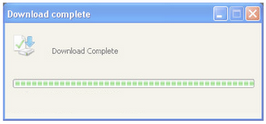Unfortunately, some bad news for LSAT test-takers:
I recently learned from LSAC that they are putting an end to LSAT PrepTest PDF sales.
This isn't a joke, and it's not an early April Fools' prank.
LSAC recently made some changes to its licensing policy for 2015. Because I sell LSAT PrepTest PDFs to the general public, I received word of these changes.
Via email, LSAC wrote to licensees:
In other words, LSAC will not allow licensees to sell LSAT PrepTest PDFs to the general public any longer. This change will go into effect as licenses come up for renewal. LSAT Blog's license expires this coming Monday, March 23rd, so if you want to buy LSAT PrepTest PDFs, get them now.
I recently learned from LSAC that they are putting an end to LSAT PrepTest PDF sales.
This isn't a joke, and it's not an early April Fools' prank.
LSAC recently made some changes to its licensing policy for 2015. Because I sell LSAT PrepTest PDFs to the general public, I received word of these changes.
Via email, LSAC wrote to licensees:
Attached is our revised Rights Management Document regarding electronic distribution of LSAT content to your program students and the general public. All renewing and future licenses must comply with this policy.
One important and necessary change is our preference that you do not use/distribute PDFs. [emphasis added. However, if you are able to demonstrate that PDFs can be made secure when sold to your course registrants only, it is possible we would approve this use.
In other words, LSAC will not allow licensees to sell LSAT PrepTest PDFs to the general public any longer. This change will go into effect as licenses come up for renewal. LSAT Blog's license expires this coming Monday, March 23rd, so if you want to buy LSAT PrepTest PDFs, get them now.















